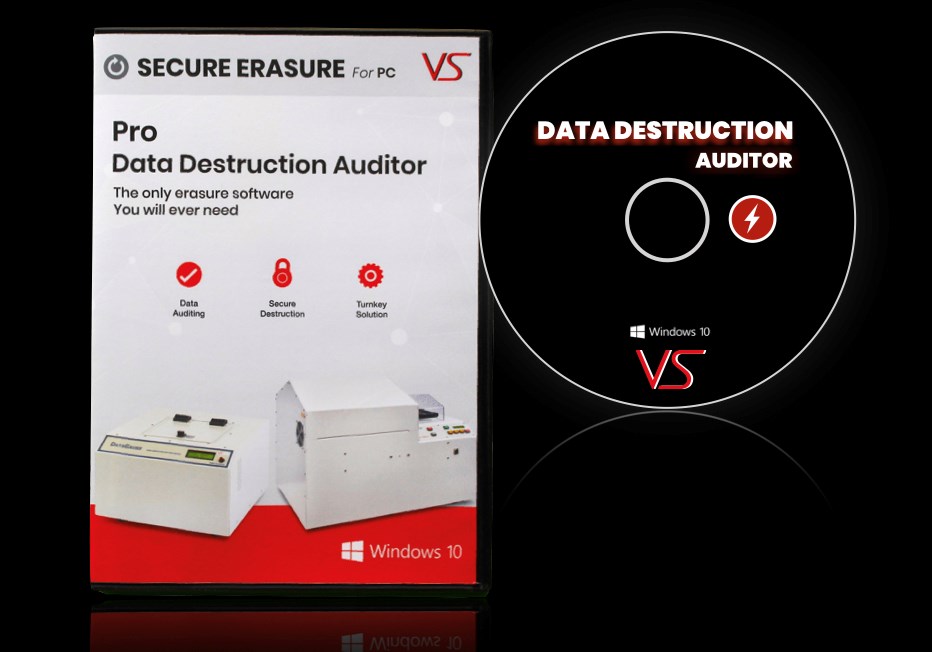Why Data Destruction is a Crucial Component of Comprehensive Cyber Security
Wiki Article
The Relevance of Effective Data Devastation Practices in Shielding Sensitive Details and Ensuring Computer Safety And Security
In an era where data violations are progressively typical, the importance of reliable information damage practices can not be overemphasized. Applying durable data devastation techniques not only mitigates these dangers but additionally straightens with legal compliance needs, making sure that organizations promote their track record and foster client trust fund.Comprehending Data Devastation
Comprehending data damage is essential in today's electronic landscape, where sensitive details can easily be endangered. Efficient information damage entails not simply making certain yet deleting data that data is irretrievable with thorough techniques. This process is vital for companies that take care of personal client info, copyright, or internal files, as any kind of violation can result in severe monetary and reputational repercussions.
Information devastation encompasses different techniques, consisting of shredding physical media, degaussing magnetic storage space tools, and employing software-based options that overwrite information multiple times. Each method serves a certain objective and must line up with the level of sensitivity of the details being gotten rid of. Physical devastation is usually preferred for hard drives containing highly confidential data, while software approaches could be adequate for much less delicate info.
Additionally, adhering to market standards and policies, such as the General Data Protection Policy (GDPR) or the Medical Insurance Portability and Liability Act (HIPAA), is essential for compliance and to minimize lawful threats. Organizations needs to establish a robust information damage policy, train employees on ideal methods, and on a regular basis investigate their treatments to make certain that all delicate details is taken care of safely and efficiently.
Risks of Inadequate Practices
Insufficient data destruction techniques subject organizations to considerable risks that can have far-ranging repercussions. When sensitive information is not effectively thrown away, it remains at risk to unauthorized access, which can cause data breaches and identification burglary. Such occurrences not only jeopardize the security of people but additionally taint the company's online reputation, leading to a loss of customer trust fund and potential economic repercussions.Additionally, regulatory conformity is increasingly stringent in several industries. Failing to comply with data devastation policies can cause significant penalties and lawful activities against companies. These fines can divert and stress financial sources focus from core company procedures.
In enhancement, the misuse of residual information can bring about copyright theft or company reconnaissance, jeopardizing affordable benefits (data destruction). The influence of poor data devastation extends beyond instant monetary losses; it can additionally cause lasting damage to brand integrity and market setting

Organizations have to recognize that information safety and security is not entirely regarding stopping violations; it likewise includes the responsible administration of data throughout its lifecycle. Ignoring efficient information damage procedures can have disastrous implications, emphasizing the need for durable procedures to mitigate these threats.
Finest Practices for Information Damage
Implementing effective information devastation techniques is crucial for guarding delicate info and maintaining compliance with regulatory requirements. Organizations ought to embrace a multi-faceted method to guarantee that data is irretrievable, therefore protecting against unapproved gain access to and potential violations.First, information ought to be categorized based upon sensitivity, allowing companies to apply suitable damage techniques tailored to the degree of danger. For electronic information, using software-based data-wiping tools that abide with market standards can effectively overwrite existing information. Physical damage approaches, such as shredding or degaussing, are vital for gadgets that store delicate information, making certain total elimination.
Establishing a clear data retention plan is important, outlining for how long various sorts of information need to be maintained prior to damage. Normal audits of data storage space systems are also needed to identify outdated or unneeded data requiring elimination.
In addition, training workers on the value of information destruction and the certain protocols to comply with fosters a society of safety and security within the company. Maintaining paperwork of data devastation processes provides accountability and supports conformity with inner plans and external regulations. By adhering to these finest methods, companies can significantly reduce the dangers connected with information exposure.
Legal and Conformity Considerations

Failure to adhere to these laws can result in serious penalties, including significant fines and reputational damage. Organizations needs to implement a robust information devastation plan that aligns with these legal structures and provides clear guidelines on the appropriate approaches of data disposal, whether physical shredding or digital cleaning.
In addition, maintaining paperwork of information destruction activities is necessary for showing compliance during audits or assessments. By focusing on lawful and conformity considerations, companies can enhance their data safety stance and foster trust with stakeholders and clients, eventually contributing to a check out this site much more safe information monitoring environment.
Benefits of Effective Data Destruction
Effective data damage methods expand past plain conformity; they supply substantial advantages to organizations that prioritize them. By making sure that sensitive info is irretrievably damaged, organizations reduce the danger of data breaches and the potential financial effects connected with them. This aggressive technique not just safeguards against unauthorized access yet additionally boosts the general dependability of the company in the visit this site eyes of clients and stakeholders.Implementing durable information damage methods, such as physical destruction of storage space gadgets or advanced data cleaning methods, adds to the strengthening of a company's cybersecurity pose. data destruction. It minimizes the possibility of intellectual building theft and protects exclusive info, thereby preserving an one-upmanship on the market

Conclusion
In verdict, efficient data destruction practices are essential for safeguarding delicate details and improving overall computer protection. Inevitably, a dedication to robust data devastation approaches promotes a culture of responsibility, therefore enhancing an organization's cybersecurity stance and keeping client trust.
Report this wiki page